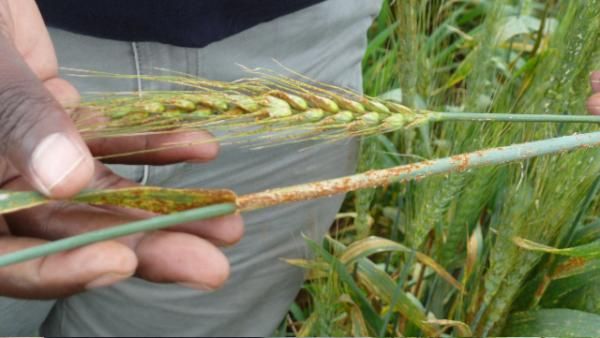At the Pulitzer Center, we're always excited to use technology to connect journalists with students around the world. Recently classes studying food insecurity at Queensland University of Technology in Brisbane, Australia met via Skype with Pulitzer Center grantee Sharon Schmickle.
"In the discussion we covered topics ranging from GM [genetically modified] bananas in Uganda, issues of social will and the adoption of technology, urban agriculture, changing key issues in Food Security over time, food security issues of sub-Saharan Africa, trangenic salmon, and how scientists can communicate more effectively with journalists," wrote Dr. Jennifer Firn, the QUT professor who approached the Pulitzer Center wanting a journalist's viewpoint on the issues her classes were studying. In a project independent of the Pulitzer Center but related to their discussion with Schmickle, groups of students created online posters on food insecurity:
Poster 1: "Weighty plight: Heavy metal soil contamination in India."
Poster 2: "Is Climate Change Making Food Unsafe?"
Poster 3: "India's Water and Food Security."
"I really enjoyed it all and she [Schmickle] was insightful!" student Emma Carterone wrote in an e-mail to Firn after the sessions. "It was a great experience and I think it really was an interesting real life example of the global citizen phenomena," wrote Michael Stillman, another student.
During her career, she reported for the Minneapolis Star Tribune, Star Tribune and McClatchy News reported from more than 20 countries on stories ranging from Japan’s fear of biotech crops and restless youth in Egypt to tension in France over farm trade and the conflicts in Iraq and Afghanistan. She currently writes for the innovative news site MinnPost.com
For the Pulitzer Center, Schmickle undertook a reporting project on UG99, a virulent new fungal disease threatening a major food security crisis by attacking the world's second largest crop, wheat. She undertook field reporting in 2008 from east Africa and from test labs in Minnesota. In fall 2011, the Pulitzer Center partnered with PBS NewsHour for a follow-up report by special correspondent Fred de Sam Lazaro, director of the Project for Under-Told Stories at Saint Mary's University of Minnesota.
Firn said she asked the students what they felt the difference was between having a conversation with Schmickle and with the scientists they had been talking with as part of the class. They all agreed that Schmickle was much more aware of the "real world." "Very interesting comments!" Firn wrote. "And I have to agree."
